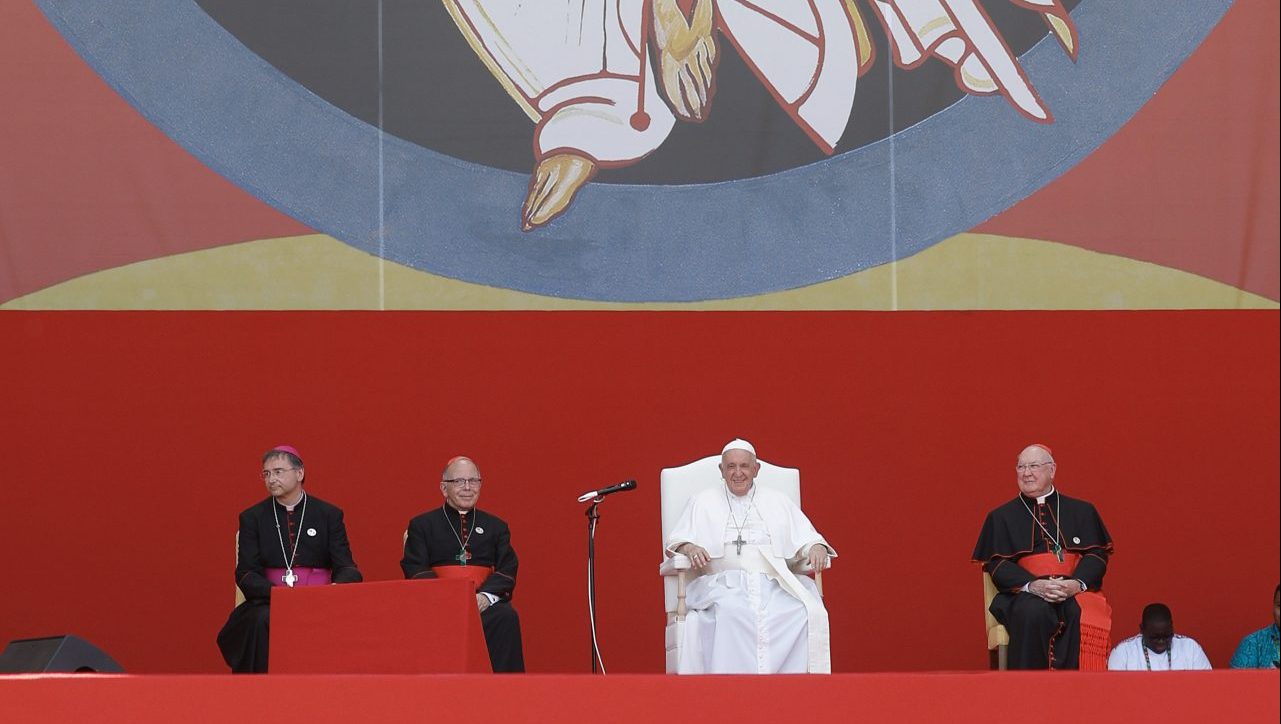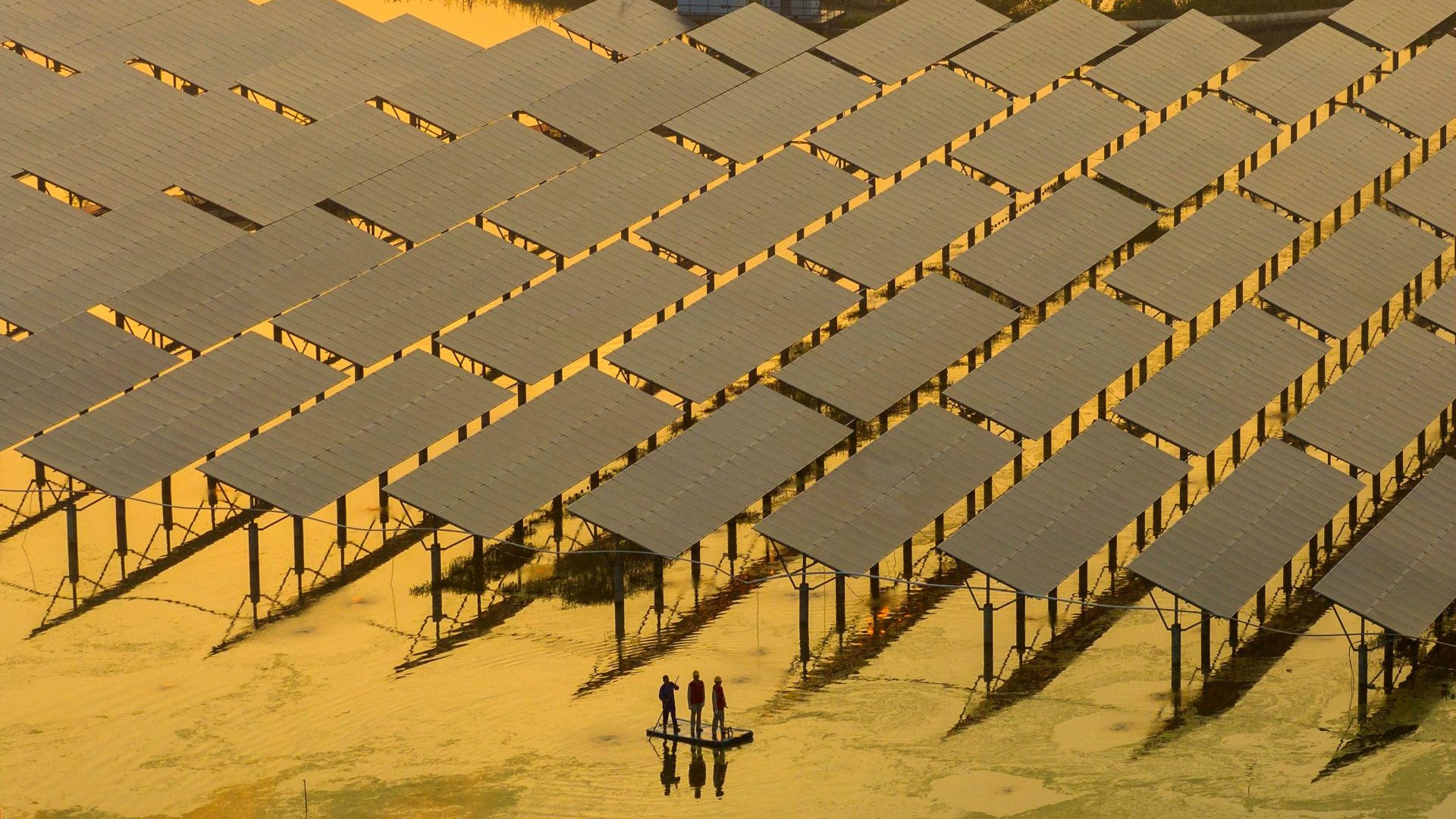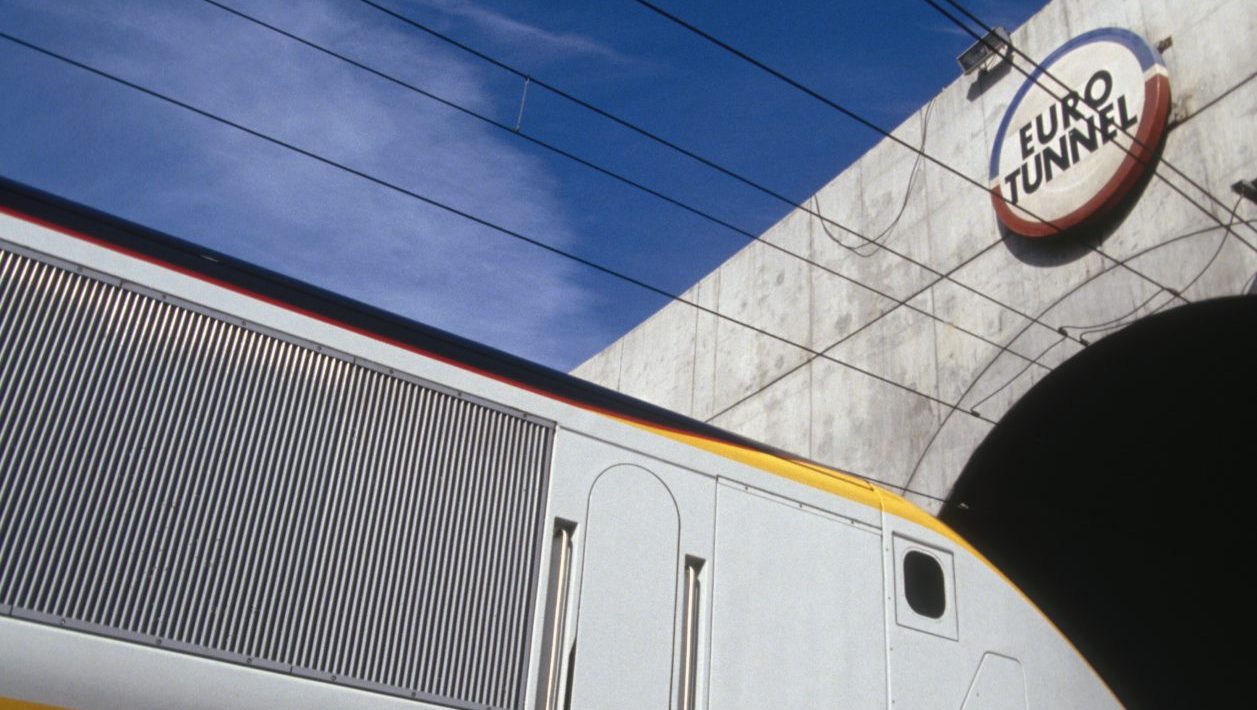The Pope was meant to be going to Cascais, just outside Lisbon, but the hills were on fire. The trees and brush around Alcabideche had erupted in flames, the ground dry as straw after a punishing drought. The fire service fought to get the outbreak under control, and by 4am the following morning, the flames were out.
A good thing too. The airport at Lisbon was full of incoming nuns. In town, huge processions of Christian pilgrims streamed through the streets, carrying flags, banging drums and blocking the traffic. Around their necks they all wore the same lanyard with a large plastic pass, their ticket for the big man.
Between 1.2 and 1.5 million people had come to Portugal to see Pope Francis, and on Tuesday night in Cascais it seemed that almost all of them were trying to get into the Burger King on the Rua Alexandre Herculano. It was mayhem. The esplanade was jammed. A huge troupe of the faithful walked past, led by a priest, waving Spanish flags, playing guitars and singing. A group of locals heading up from the beach tapped the sides of their heads and shouted unfriendly-sounding advice at them in Portuguese.
Later, in a park in the Estoril neighbourhood, a group of happy Catholics ate pizzas and got down to a lively 80s covers band. Proceedings peaked with a rendition of Is this Love, by Whitesnake, as the crowd of revellers danced in orderly rows, hands in the air, eyes closed.
When I asked about the huge mob of pilgrims, the taxi driver, a Brazilian, was more interested in Brexit. “I think it has made everything hard for you,” he said, sympathetically. “Everything is much more expensive.” Not to be drawn on the Christian god, he was far more interested in the sporting kind. Cristiano Ronaldo was building a new house in the area. “Forty million euros,” the taxi driver said, though the figure seemed a little high. When we drove past the half-built house, it turned out to be the size of our local Tesco. Perhaps 40 million was right after all.
Back in the spiritual realm, the question was where the Pope was actually going to appear. The entire centre of Lisbon had been shut down, and you needed one of those lanyard passes to get in. No chance. Applying for media accreditation was pointless. The Pope was also heading out to Cascais, half an hour north of the capital. Perhaps easier to see him there, or maybe en route, a glimpse of white as he flashed past in the Pope-mobile. Even then the crowds would be immense.
But not everyone was pleased at the Pope’s visit. In Lisbon, a group had put up hoardings across the city: “4,800 Children Abused by the Catholic Church in Portugal”. The present pope has been more open to the many, many failings of the Catholic church, but the reverence for the church still drowns out all possibility of a full reckoning. The drums and the singing are just too loud.
On the day of the Pope’s main show, vast numbers of people filled a park in the outskirts of Lisbon to hear him celebrate Mass. Whether the crowd was really made up of a million worshippers is up for debate – but there were a lot of people there that day. I couldn’t get anywhere near the place, and had to watch it all on CNN Portugal, which carried excited interviews from people all across the city who, like me, couldn’t get in. The faces of the crowd were ecstatic.
The pilgrims were all young – the visit was specifically intended as a festival for the world’s Catholic youth – and they were from all over. There were Spanish and Portuguese flags, yes, but also Brazilian and Ukrainian flags, and many others that, shamefully, I did not recognise.
It was a reminder that the broad secularism of north-western Europe is the exception rather than the rule. It was also a reminder that the human instinct to believe in something – be it a religion, or a political project – has lost none of its power. In Portugal, in Britain, everywhere, despite all the clamour, people are quietly living with the consequences.




